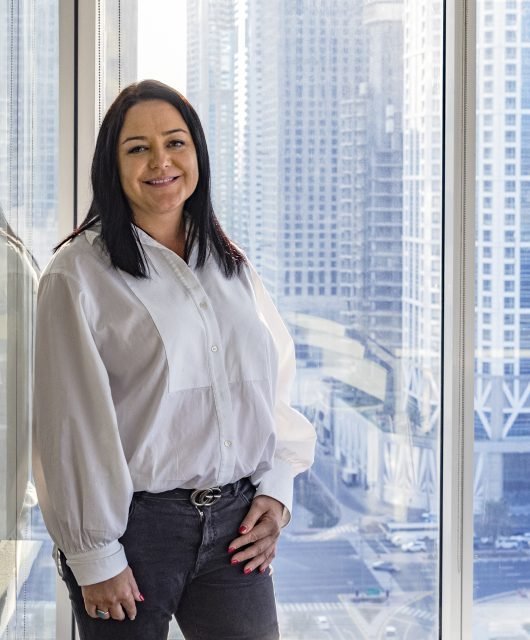The Wonder Women of MENA: UM MENAT’s Amel Rebbouh

About Amel Rebbouh, New Business Lead, UM MENAT
Amel started her career in media by applying for a summer job during her second year of university. It was a whole new world for her, from which she was eager to absorb as much knowledge as possible. After leading the media department of McCann in Algiers for a while, she was transferred to UM Dubai to work on L’Oréal account. Even though her dream as a child was to become a hairdresser, she’s now the new business lead for UM MENAT. She’s the mom of two lovely kids, Hadi and Rym-Jude.
There is so much that made her proud throughout her tenure at UM – working on L’Oréal for 7 years is one example. L’Oréal was, and still is, a key account at UM MENAT. The reason why she’s particularly fond of L’Oréal is that it has been the first-ever account she worked on, and the level of learning and quality of projects that was realized back then was phenomenal. Another key milestone to recall when UM won Reckitt back in 2015. The exciting challenge behind winning one of the biggest FMCG businesses in this region then, was to recruit the right team while still ensuring the day-to-day work was done.
Currently , after being promoted to the role of New Business Director for the MENAT region, she has the privilege to collaborate with great talent across the globe one project at a time (or 3 or 4)
About her thoughts for the industry
Navigating the ever-changing landscape of the industry can be a significant challenge, especially with the rapid developments that have occurred in recent years, bolstered by Covid. The industry is in a constant state of evolution, and this evolution brings with it a rapid pace of changing trends that can significantly impact the longevity of key innovations, products, and platforms . Even industry titans, like Mark Zuckerberg, have been forced to adapt as seen with his decision to bury the metaverse, a decision driven by astronomic growth in chat GPT, which has started to threaten other tech giants like Google, who have seen, for the first time ever, a decline in Google Trends.
As new platforms peak in interest and then drop in popularity, the pace of change is only getting faster. For example, we have seen before our eyes significant decreases of interest in NFT and Web3 search trends in the region, soon after their inception. An indication of how rapidly the market focus can shift.
To navigate this ever-changing media landscape, brands should be proactive in their approach. One important step is to stay up-to-date on the latest trends and advancements in technology, as well as closely monitoring the latest cultural movements and consumer shifts. This requires investing in research and development, as well as closely monitoring the competitive landscape.
Another key strategy is to embrace change and adapt quickly. This may mean pivoting to a new product line or changing the focus of the brand to better align with the shifts in consumer preferences. Understanding the needs and preferences of the brands audience is essential in tailoring products and services accordingly. By focusing on the customer experience and providing innovative solutions that meet their evolving needs, brands can ensure they remain relevant and successful in the ever-changing media landscape.
To gain a better understanding of their audiences, brands should ask critical questions, such as how do they behave, whether they are living in the moment or planning for the future, and what role the brand can genuinely play in improving their lives. It is also important to identify key issues that impact their audiences’ lives and understand what matters to them the most. This can help brands remain customer-centric and better adapt to those needs and preferences.
In conclusion, changing trends in media landscape can have a significant impact on the longevity of key tech products, and brands that fail to adapt risk becoming irrelevant. To navigate these trends, brands must stay up-to-date on the latest advancements, embrace change, and remain customer-centric in their approach. By doing so, they can ensure they remain relevant and successful in the ever-changing media /tech landscape.





